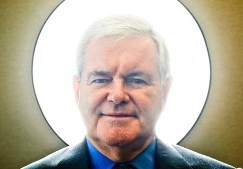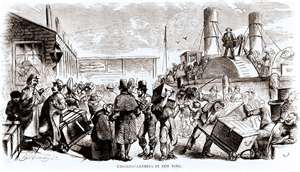I watched the President’s State of the Union address with great interest. Not because I had an expectation one way or the other of what it might include, but the conversations that always follow a SOTU reveal what the talking points will be moving forward.
I heard several pundits talk about “American Exceptionalism” and the talk among several conservatives that I know centered on a basic premise: That America is no longer great because we have accepted (because of liberals) a Nanny State mentality; entitlements for lazy Americans, and a shaming of those who have worked hard and became successful.
“What will make us strong again is what President Trump is doing- by restoring our faith in the fact that we are the greatest country in the world” said a colleague (who gave me permission to quote him).
The words aren’t new. When Donald Trump was running for President he criticized President Obama for being critical of American Exceptionalism. Former New York Mayor Rudy Guiliani had also said that he didn’t believe President Obama loved America. Not long before that Senator Rand Paul stated: “America is indeed exceptional. Our history has proved it so.”
 Paul’s statement echoed Newt Gingrich’s book “A Nation Like No Other” in which he extolls the virtue of “Recognizing and honoring the history-making, world-changing ideals our Founding Fathers enshrined.”
Paul’s statement echoed Newt Gingrich’s book “A Nation Like No Other” in which he extolls the virtue of “Recognizing and honoring the history-making, world-changing ideals our Founding Fathers enshrined.”
And that narrative continues back to Mitt Romney who ran on that same premise five years ago; a return to the principles that stirred the dreams of millions of immigrants to journey to a land where “all men are endowed by their Creator with certain unalienable rights.”
“Almost all of us are immigrants or descendants of immigrants,” Romney iterated, “who came here for opportunity.”
Rudy, Rand, Mitt, Newt, Donald, and many Americans are passionate about the historical promise of opportunity in America and how we have fallen from our exceptional directives. Particularly throughout Obama’s presidency they’ve talked about American “Exceptionalism” and a need to recapture the values upon which our prosperity was built. Books have been written and stirring speeches have been made.
There is a problem, however, with their embrace of that ideal. The story of America they espouse is selective. It is culled from the exceptional events in our history, but is a narrative taking artistic license.
The true story has many shades of grey.
 Once upon a time…during great periods of immigration to America, when immigrants left poverty, famine or threats of tyranny and war, the possibility of a better life was enough to take great risks. From that fortitude many created new enterprises and their relentless pursuit of success fueled an Industrial Revolution.
Once upon a time…during great periods of immigration to America, when immigrants left poverty, famine or threats of tyranny and war, the possibility of a better life was enough to take great risks. From that fortitude many created new enterprises and their relentless pursuit of success fueled an Industrial Revolution.
This did, indeed, create the economy that made the American dollar the currency of the world, and it is a part of our history from which to draw inspiration. What this history fails to record as dramatically, however, is that this story of great determination also created failures. The once agrarian culture of colonial America was replaced by urban blight, conflicts and prejudices, and a new class of poverty became as much a part of the landscape as newly drawn success.
The ideal that many Americans want to return to overlooks such realities. Realities like Industrial Barons who destroyed their competition and exploited workers. The decimation of indigenous cultures and the unconscionable continuation of slavery in a nation proclaiming freedom is stepped over in this fairytale. What it does record is only that we had a war to (presumably) end it.
What doesn’t end, however, are tentacles of human nature that can reach toward greed, fear and selfishness; that hold onto bigotry and deny rights when they feel threatened.
This is the paradox of freedom that compelled our founding fathers to create representative government. America has seen what happens when monopolies inhibit new businesses and what a stock market will do without regulations to keep it fair.
We’ve seen what can happen to workers, minorities, and to our resources, without the aggregate force of the people to keep special interests in check.
The America of Rudy, Rand, Newt, Mitt and Donald doesn’t exist as a perfect realization of their fantasy. There’s nothing wrong with finding inspiration in the highlights of our journey, but when we form policy based on returning to values based on a semi-fictional history…well, there are going to be problems when dealing with issues that are 100% real.
Furthermore, if it is a return to greatness that we seek, what are we referring to? When our economy was robust, the middle class was growing, and the American Dream florished in the 50’s and 60s. Tax rates on the highest earners were twice as high and CEOs of our biggest corporations didn’t make 300 times that of their average employee (as they do today), they made a mere 10 times more. And they were still rich.
We all want greatness, we all want a better life and more secure future, but we aren’t going to get there by creating policies based on antiquated or selective triumphs in American history. We get there by learning from history and by examining our frailties and shortcomings as well as our achievements and strengths.
It will be a more cognitive and honest reflection on the principles of freedom, humanity, compassion and generosity that will lead America into an exceptional future.